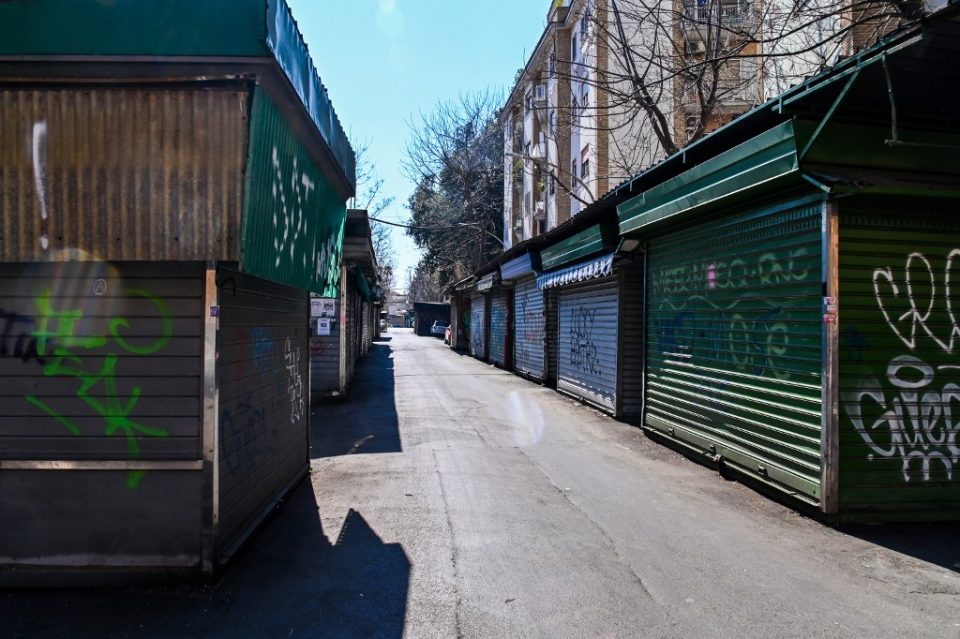Coronavirus: the financial help available in Italy and how to request it

Italy has announced several measures to help those affected by the coronavirus epidemic and the shutdown in Italy in an engaged way. Here are further details of the measures and who may be eligible.
The Italian government has introduced measures to help self-employed workers and to prevent companies from laying off employees because of the financial fallout from the coronavirus crisis in Italy.
Many companies have been forced to shut down as the country struggles to control the largest coronavirus outbreak in Europe.
A sign in a closed shop in Milan says that business is suspended due to emergency quarantine measures.
The financial rescue plan signed in a government decree in mid-March is 72 pages long and contains 127 points in total.
Although it is impossible for us to go into all these points in detail, here are the parts that international residents in Italy most need to know about - and the information we have so far about how your family or business can benefit from it.
Payments for self-employed workers
Self-employed and seasonal workers, such as tour guides, can request a payment of 600 euros for the month of March to protect them from relapses as activities dry out.
Applications were opened on April 1 via the INPS (Social Security Office) website, however on the first day the site had such a large number of applications that it crashed.
Self-employed workers who need to take a break from work to take care of their children can also receive "parental leave" payments that cover up to half of their declared monthly income.
For more details, talk to your accountant or visit the INPS website.
Good food
In a subsequent decree, the government also released around € 400 million for mayors to be given in the form of food stamps to those who cannot afford food. They must be distributed by the local authorities to the most needy.
The vouchers are intended only for those who have no income and are unable to afford even the basic necessities and are likely to be tested by the means.
The mayors said they would set up access points where vouchers can be distributed, although the details will no doubt vary from one municipality to another. For more information, see the website of your municipality.
Throughout Italy, charities are also creating food banks and food distraction coffers for the needy, often in collaboration with municipal authorities. Information on these schemes should also be available on the local municipality's website.
Employee rights
The decree states that companies are prohibited from laying off workers for the next two months without "justified objective reasons".
The government will also cover € 100 bonuses for lower-paid employees, which must be paid directly by employers along with regular wages in April.
Childcare costs and parental leave Alle
families must issue 600 euro vouchers to cover babysitting hiring expenses to take care of children who do not attend school at least until April 3.
Parents can request these payments through the INPS social security office website.
The Italian government said on Wednesday that its one-month shutdown of everything from kindergartens to private universities could be successful in the coming month.
Rental and mortgage payments
While mortgage payments have been reported to be suspended, not everyone will be able to benefit from this measure.
Self-employed workers and freelancers with mortgages can ask to suspend payments for up to 18 months if they can prove that their income has fallen by at least a third. However, banks don't always agree on this.
Commercial rents may also be suspended.
The government is compensating shop owners for forced closures by offering them tax credits to cover 60 percent of their March rent payments.
Payments for residential rents however are not mentioned in the decree.
Tax and insurance payments suspended
Various taxes have been suspended for the sectors and professions deemed most affected by the crisis.
An existing list of professionals at risk has been expanded to include everyone from truck drivers and hotel staff to chefs and employees.
A restaurant owner is out of his closed business in Rome. Photo: AFP
You should ask your employer or accountant for full details of what you might be eligible for.
Further information is also available on the websites of the INPS (social security office) or the tax office.
The sectors most affected by businesses can suspend payments of social security and welfare contributions and payments of compulsory insurance.
The sectors and activities deemed most at risk pursuant to the decree include:
Tourism businesses, including travel agencies and tour operators
Restaurants, ice cream parlors, bakeries, bars and pubs
Theaters, concert halls, night clubs, discos and game rooms
Sports clubs
Rental services (such as car or sports equipment rental companies)
Nurseries and educational services
Museums, libraries, archives, monuments
Sports facilities including gyms and swimming pools
Amusement and theme parks
Lottery and betting offices
The government plans to start collecting these taxes again in May.
A number of other measures include four-month tax privileges for Italian sports federations and € 130 million set aside to support cinema and cinema in the country.
Much of the € 25 billion fund will be used for health and emergency services, ministers said. In addition to funding for ICU beds and equipment, this includes € 150 million for overtime payments for healthcare professionals.